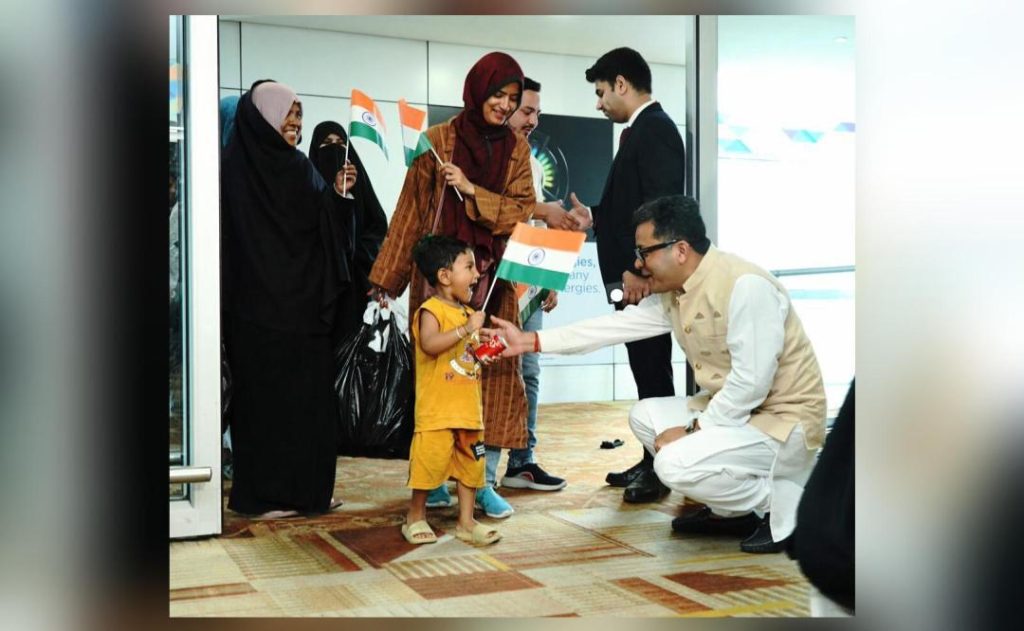
Indian Govt Evacuates Indian, Sri Lankan & Nepalese Nationals from Iran
On June 24, the Indian government announced the successful evacuation of 281 Indian, 3 Sri Lankan, and 2 Nepalese nationals from war-hit Iran. The evacuation operation, part of the government’s efforts to ensure the safety of its citizens abroad, was a significant milestone in the ongoing crisis.
According to an official statement issued by the Ministry of External Affairs (MEA) spokesperson Randhir Jaiswal, the evacuees arrived in New Delhi on a special flight from Mashhad, a city in Iran, at 1500 hrs on June 24. This evacuation operation is part of the government’s “Operation Sindhu,” which aims to repatriate Indian nationals from various countries.
Background of the Crisis
Iran has been engulfed in a conflict between government forces and opposition groups, including the Islamic State (ISIS), for several years. The situation has been further complicated by the ongoing rivalry between Iran and its regional adversaries, including Saudi Arabia and the United Arab Emirates. As a result, the country has become a war zone, posing significant risks to the safety of foreign nationals, including Indians, Sri Lankans, and Nepalis.
Evacuation Efforts
The Indian government has been actively engaged in evacuating its citizens from Iran since the escalation of the conflict. According to the MEA spokesperson, a total of 2576 Indian nationals have been evacuated from Iran under Operation Sindhu, which was launched in response to the crisis.
The evacuation process involves a multi-agency effort, involving the MEA, the Indian Air Force (IAF), and other government agencies. The government has been working closely with local authorities in Iran to identify and extract Indian nationals from the conflict zone.
Evacuees’ Experience
The evacuees who arrived in New Delhi on June 24 described their experience as harrowing. Many of them had been stranded in Iran for several weeks or even months, facing significant risks to their lives and livelihoods. “We were living in fear, not knowing when the fighting would start again,” said one evacuee. “We were extremely grateful to the Indian government for evacuating us from this war-torn country.”
Government’s Commitment to Ensuring Citizen Safety
The Indian government’s commitment to ensuring the safety and security of its citizens abroad is reflected in its evacuation efforts. The government has been working tirelessly to evacuate Indians from conflict zones around the world, including Iran, Syria, and Yemen.
The government’s efforts have been widely appreciated by the Indian diaspora, who have praised the government’s swift response to the crisis. “We are grateful to the Indian government for evacuating us from Iran,” said another evacuee. “We can’t thank them enough for their efforts.”
Conclusion
The Indian government’s evacuation of Indian, Sri Lankan, and Nepalese nationals from Iran is a significant achievement in the ongoing crisis. The evacuation operation, part of the government’s “Operation Sindhu,” reflects the government’s commitment to ensuring the safety and security of its citizens abroad.
As the situation in Iran remains volatile, the government is likely to continue its evacuation efforts to ensure the safety of Indian nationals. The Indian diaspora, meanwhile, will continue to appreciate the government’s swift response to the crisis, which has saved countless lives and provided a lifeline to those stranded in the war-torn country.






